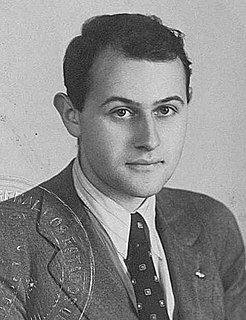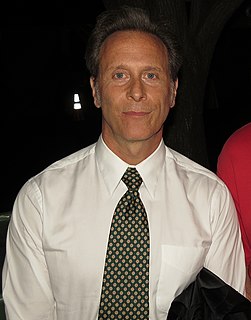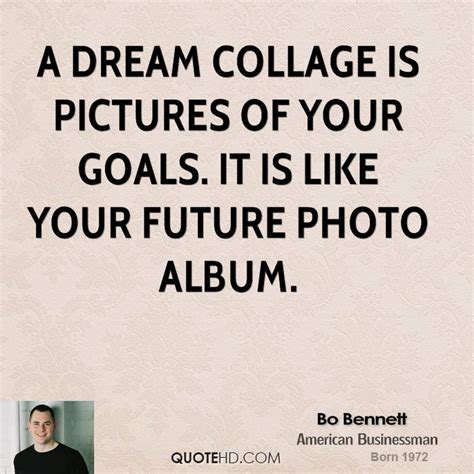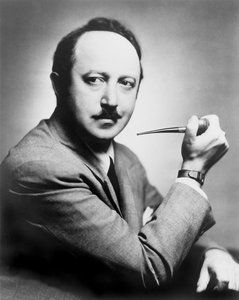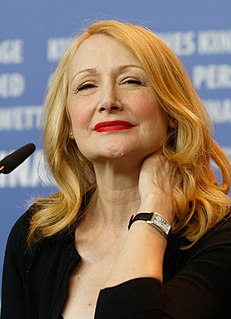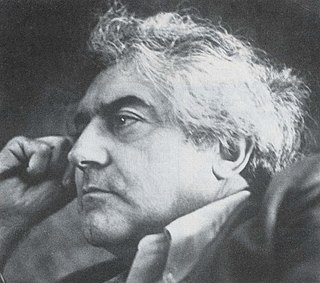Top 1200 Personal Philosophy Quotes & Sayings - Page 8
Explore popular Personal Philosophy quotes.
Last updated on November 15, 2024.
Philosophy used to be a field that had content, but then 'natural philosophy' became physics, and physics has only continued to make inroads. Every time there's a leap in physics, it encroaches on these areas that philosophers have carefully sequestered away to themselves, and so then you have this natural resentment on the part of philosophers.
The task of a philosophy of photography is to reflect upon [the] possibility of freedom - and thus its significance - in a world dominated by apparatuses; to reflect upon the way in which, despite everything, it is possible for human beings to give significance to their lives in the face of the chance necessity of death. Such a philosophy is necessary because it is the only form of revolution left open to us.
I started my first year at college on May 10 2015, and dropped my first video, 'Black Box' on the same day, it's pretty weird. I'm studying Philosophy and Ethics, Law and Music. Ethics helps a lot with music. Philosophy gives you a great perspective on things; it makes you think deeper about what you're saying.
Poetry is related to philosophy as experience is related to empirical science. Experience makes us acquainted with the phenomenon in the particular and by means of examples, science embraces the whole of phenomena by means of general conceptions. So poetry seeks to make us acquainted with the Platonic Ideas through the particular and by means of examples. Philosophy aims at teaching, as a whole and in general, the inner nature of things which expresses itself in these. One sees even here that poetry bears more the character of youth, philosophy that of old age.
One could say that what differentiates ancient from modern philosophy is the fact that, in ancient philosophy, it was not only Chrysippus or Epicurus who, just because they had developed a philosophical discourse, were considered philosophers. Rather, every person who lived according to the precepts of Chrysippus or Epicurus was every bit as much a philosopher as they.
Philosophy, like science, consists of theories or insights arrived at as a result of systemic reflection or reasoning in regard to the data of experience. It involves, therefore, the analysis of experience and the synthesis of the results of analysis into a comprehensive or unitary conception. Philosophy seeks a totality and harmony of reasoned insight into the nature and meaning of all the principal aspects of reality.
The Court's decision reflects the philosophy that judges should endure whatever interpretive distortions it takes in order to correct a supposed flaw in the statutory machinery. That philosophy ignores the American people's decision to give Congress '[a]ll legislative Powers' enumerated in the Constitution. They made Congress, not this Court, responsible for both making laws and mending them.
We are now returning to the 18th century empirical approach with the new interest in the evolutionary basis of ethics, with 'experimental' moral philosophy and moral psychology. As a result, we understand better why moral formulas are experienced as ineluctable commands, even if there is no commander and even if the notion of an inescapable obligation is just superstition. So moral philosophy has made huge progress.
This is an extremely ambitious book. In addition to science and mathematics, Byers brings to bear insights from literature, philosophy, religion, history, anthropology, medicine, and psychology. The Blind Spot breaks new ground, and represents a major step forward in the philosophy of science. The book is also a page-turner, which is rare for this topic.
Our philosophy is that we want to be an ecosystem. Our philosophy is to empower others to sell, empower others to service, making sure the other people are more powerful than us. With our technology, our innovation, our partners - 10 million small business sellers - they can compete with Microsoft and IBM.
PICARD: There is no greater challenge than the study of philosophy. WESLEY: But William James won't be in my Starfleet exams. PICARD: The important things never will be. Anyone can be trained in the mechanics of piloting a starship. WESLEY: But Starfleet Academy PICARD: It takes more. Open your mind to the past. Art, history, philosophy. And all this may mean something.
Certain issues in philosophy of science (having to do with observation and the definition of a theory's empirical import) had beenmisconstrued as issues in philosophy of logic and of language. With respect to modality, I hold the exact opposite: important philosophical problems concerning language have been misconstrued as relating to the content of science and the nature of the world. This is not at all new, but is the traditional nominalist line.
Subjective reason ... is inclined to abandon the fight with religion by setting up two different brackets, one for science and philosophy, and one for institutionalized mythology, thus recognizing both of them. For the philosophy of objective reason there is no such way out. Since it hold to the concept of objective truth, it must take a positive or a negative stand with regard to the content of established religion.
Who knew, in 2000, that compassionate conservatism meant bigger government, unrestricted government spending, government intrusion in personal matters, government ineptitude, and cronyism in disaster relief? Who knew, in 2000, that the only bill the president would veto, six years later, would be one on funding stem-cell research? A more accurate term for Mr. Bush's political philosophy might be incontinent conservatism.
Philosophy can be compared to some powders that are so corrosive that, after they have eaten away the infected flesh of a wound, they then devour the living flesh, rot the bones, and penetrate to the very marrow. Philosophy at first refutes errors. But if it is not stopped at this point, it goes on to attack truths. And when it is left on its own, it goes so far that it no longer knows where it is and can find no stopping place.
And as I stumbled onto Eastern philosophy and Buddhism, it was the first time I had ever read any sort of philosophy that really made a tremendous amount of sense. What I liked that was missing from my experience of Christianity growing up was a sort of acceptance, a sort of being OK with being imperfect and not focusing on the sin.
Philosophy used to be a field that had content, but then natural philosophy became physics, and physics has only continued to make inroads. Every time theres a leap in physics, it encroaches on these areas that philosophers have carefully sequestered away to themselves, and so then you have this natural resentment on the part of philosophers.
Only in the West did a philosophy develop that was not only no longer the love of wisdom but went so far as to deny the category of wisdom as a legitimate form of knowledge. The result was a hatred of wisdom that should more appropriately be called ‘misosophy’ (literarily hatred of Sophia, Wisdom) rather than philosophy.
Descartes, the father of modern philosophy ... would never-so he assures us-have been led to construct his philosophy if he had had only one teacher, for then he would have believed what he had been told; but, finding that his professors disagreed with each other, he was forced to conclude that no existing doctrine was certain.
It started becoming clear to me how one might have views about the nature of mind and of knowledge which are empirically informed. This way of thinking about philosophical theorizing makes sense of how philosophy might be a legitimate intellectual activity, in a way that a good deal of the armchair philosophy, I believe, cannot.
A good job is largely anonymous and forgotten (but still important). A personal job, on the other hand, is humanized. It brings us closer together. It might not be remarkable, but it stands out as memorable because (however briefly) the recipient of the work was touched by someone else. Often, remarkable work is personal too, but personal might just be enough for today.
It is true, that a little philosophy inclineth man’s mind to atheism; but depth in philosophy bringeth men’s minds about to religion. For while the mind of man looketh upon second causes scattered, it may sometimes rest in them, and go no further; but when it beholdeth the chain of them, confederate and linked together, it must needs fly to Providence and Deity.
You can't will something into being. If you follow that philosophy all the way, to will something into being, that's animal style. That's what man does. But if you're looking at the philosophy correctly, and I never did - I like to think I did sometimes - you have to do it without ego, without the I. You have to separate yourself.
In many places, above all in the Anglo-Saxon countries, logistics is today considered the only possible form of strict philosophy, because its result and procedures yield an assured profit for the construction of the technological universe. In America and elsewhere, logistics as the only proper philosophy of the future is thus beginning today to seize power over the intellectual world.
I had rather believe all the Fables in the Legend, and the Talmud, and the Alcoran, then that this universall Frame, is without a Minde. And therefore, God never wrought Miracle, to convince Atheisme, because his Ordinary Works Convince it. It is true, that a little Philosophy inclineth Mans Minde to Atheisme; But depth in Philosophy, bringeth Mens Mindes about to Religion.
One day, I found this book at a used bookstore with 'Satanic Bible' written on the cover, and I thought maybe I should read it and see what it is. I thought it was like a religion, but then I read the book, and what was in it was pure life philosophy - and it was a life philosophy that described how I felt at that point.
Philosophy is the art of dying.Philosophy is an activity that has always been concerned with how one seizes hold of one's mortality, and I see myself continuing a very ancient tradition that goes back to Socrates and Epicurus, which is that to be a philosopher is to try and learn how to die. In learning how to die, one learns how to live.
The traditional disputes of philosophers are, for the most part, as unwarranted as they are unfruitful. The surest way to end them is to establish beyond question what should be the purpose and method of a philosophical enquiry. And this is by no means so difficult a task as the history of philosophy would lead one to suppose. For if there are any questions which science leaves it to philosophy to answer, a straightforward process of elimination must lead to their discovery.
I studied philosophy in school, became disgruntled by the fact that it was a way to have a very interesting conversation with very few people about very few things in very narrow terms and yet still believed (and still believe today) that there was something that I was getting myself involved in when I said I wanted to study philosophy.
The intellectual and moral satisfaction that I failed to gain from the utilitarianism of Bentham and Mill, the revolutionary methods of Marx and Lenin, the social contract theory of Hobbes, the "back to nature" optimism of Rousseau, and the superman philosophy of Nietzsche, I found in the nonviolent resistance philosophy of Gandhi. I came to feel that this was the only morally and practically sound method open to oppressed people in their struggle for freedom.
Our faith in democracy, personal freedoms and human 'rights', and the other comforting prescriptions of the humanist liberal credo stem from the supremacy of maritime over territorial power. Pragmatists may deplore this as crude determinism, as another vain attempt to construct a general theory of history. They should reflect on the sort of political philosophy and structures we might now adhere to had the Habsburgs, Bourbons, Bonaparte, Hitler, Stalin or his heirs prevailed in the titanic world struggles of the past four centuries.
Chinese were bornwith an accumulated wisdom, a natural sophistication, an intelligent naivete, and unless they were transplanted too young, these qualities ripened in them.... If ever I am homesick for China, now that I am home in my own country, it is when I discover here no philosophy. Our people have opinions and creeds and prejudices and ideas but as yet no philosophy.
Our present work sets forth mathematical principles of philosophy. For the basic problem of philosophy seems to be to discover the forces of nature from the phenomena of motions and then to demonstrate the other phenomena from these forces. It is to these ends that the general propositions in books 1 and 2 are directed, while in book 3 our explanation of the system of the world illustrates these propositions.
The very hope of experimental philosophy, its expectation of constructing the sciences into a true philosophy of nature, is basedon induction, or, if you please, the a priori presumption, that physical causation is universal; that the constitution of nature is written in its actual manifestations, and needs only to be deciphered by experimental and inductive research; that it is not a latent invisible writing, to be brought out by the magic of mental anticipation or metaphysical mediation.


